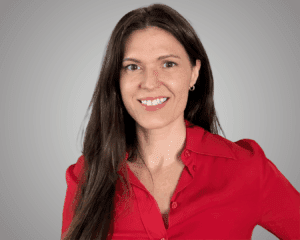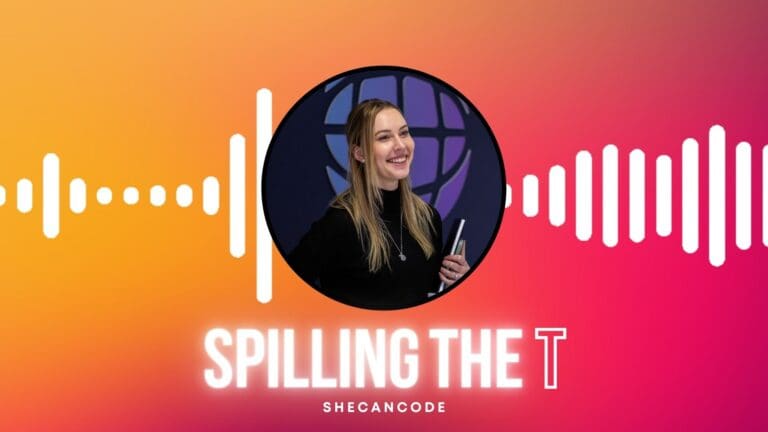Devin Bramhall is a Business Growth Advisor, and a leading voice on the strategic role of storytelling in business.
With over 15 years of marketing and leadership experience across startups, agencies, and large corporations, Devin helps companies increase their revenue and build stronger, more authentic brands. She is the former CEO of Animalz, the leading content marketing agency for B2B SaaS companies, where she doubled revenue to nearly $12M in two years. Devin also served as Executive Director of Boston Content, where she more than doubled both membership and revenue through community-driven programming. She is set to release her first book, B2B Content Marketing Strategy, later this year.
 My career in content marketing began in a birthing room in Bali.
My career in content marketing began in a birthing room in Bali.
I was 26 at a birthing clinic in Nyuh Kuning volunteering as a program coordinator, a position my bank account pretty firmly said would last three months max (I stayed for almost 2 years just to show it whose boss).
Barely a month into my stay, I was summoned at 2:30 a.m. by the clinic’s founder and head midwife to help deliver a baby. I had no training and I didn’t speak the language fluently. But with the help of the midwives, I caught a real life baby with my bare hands and a question I’d wondered about for most of my life was answered: babies really are slippery when they come out.
It was light out when I finally returned to my room, exhausted yet unable to sleep. I remember the tingling in my fingertips and how clear-headed I was. It was a familiar feeling, and I knew what came next: I had to write about it. An instinct that later became a story I told at standing storytelling competitions, and ultimately, the spark that led me to a career in marketing.
Growing up unbound and unstructured
Many folks have reacted to my career/life story with surprise: “You mean, you didn’t finish high school?!” To me, it was perfectly normal. My parents raised me to see that there are many paths people can take in life and thrive.
I was homeschooled for most of my education aside from a stint at public school from 5th through 9th grade.
At 12, I began working, doing data entry for a local Boston pet sitting business serving thousands of clients. By 16, I was managing her team of 20, running all aspects of the business from payroll to hiring and everything in between. As soon as I was of age (16 ½ ), I got my GED and went to Hawaii to do a semester of college, living on my own with two roommates. I was the youngest person there.
I returned to the pet sitting business, followed by a season working at the Appalachian Mountain Club, and no idea what to do beyond that fall.
Front door locked? Climb through the window
Not long after I returned home, I decided to pursue a career in PR (for some reason), and NYU was where I wanted to get my degree.
The only problem is that I didn’t take the SATs, which were a requirement to apply. I also had a paralyzing fear of taking tests, which meant the direct route wasn’t an option. I wonder if they’re required for transfer students? After all, I did have that semester of college in Hawaii under my belt…
Turns out, getting accepted wasn’t the biggest hurdle after all. My parents couldn’t cosign a loan because they didn’t have the credit history (or money). My grandparents wouldn’t. The financial aid NYU gave me wasn’t nearly enough.
My dream that I worked so hard for wasn’t going to come true in the way I’d imagined.
Three years later, I graduated with honors from UMass Boston with an armful of academic awards, my face on a billboard, and an ad campaign on the subway for the school. My interest in PR led me to journalism, and I got my undergrad degree in English and Communications.
My senior year, I remember asking my academic advisor which journalism schools I should apply to. She said, “Don’t get your masters in journalism, get it in the topic you want to write about.”
By then, I’d developed an interest in fashion, so I got side gigs at local event companies styling their fashion shows. For one show, I sourced clothes from a local high-end clothing boutique and developed a friendship with the owners. I told her I wanted to become a fashion journalist, so she gave me a job at her store.
After less than a year working for a real-life “Devil Wears Prada” I left, more than happy to let go of my fashion journalism dreams. Everything I had seen, I hated.
But what got me into the tech industry was financial fraud.
A brush with crime and discovering marketing
After I quit the boutique, I landed a job at a design consultancy working in Accounts Receivable managing project budgets, invoicing, collections, etc. Two years in, the President was bankrupting the company, missing payroll because he was using profits to buy houses in Telluride, and gifts for his wife. It was when he started asking me to create fake invoices for nonexistent contracts that I realized I had to go. Financial fraud wasn’t exactly in my life plan.
So I applied for a job at this startup in Boston called Springpad and became their community manager, not knowing anything about how to do the job – I didn’t even have a Twitter account! After 9 months, though, I got this itch for change and that’s when I headed off to Bali.
(I did end up being investigated by the FBI after all, but by then I was in Bali. According to the company’s office manager, two people from the FBI showed up at the office investigating the president’s financial trickery. She had to explain to them why neither me nor the COO were available for questioning due to both of us being outside the country. “Devin is in Bali and the COO, she’s in Switzerland…”)
When I returned to the U.S., Springpad asked me to come back, and after a year or so doing community management and customer support, I convinced my boss to create a content role for me.
I had no formal marketing training or experience, so I self-taught on the job, learning how to write brand Facebook posts on the weekends and engaging in outside-the-job experiences. Over the next 10 years, I developed an event series, ran the largest marketing group in Boston, produced 2 TEDx talks, taught marketing classes, and more. I was ready for a leadership position.
Growth doesn’t come from following the rules, but from rethinking them.
When I was hired by Animalz, my role was the VP of Marketing, but after 18 months, I was in a meeting with the founder, and I stated, “I want your job”! In another 8 months, I had my first CEO position. That was in March 2020, and as the pandemic hit, we lost over $100,000 in monthly recurring revenue in six weeks. Yet in the middle of all of this crazy uncertainty is when I realised that my perceived disadvantages had actually uniquely prepared me to navigate a career with no established playbook.
I had total imposter syndrome when I became a CEO. I honestly thought that other CEOs were better at their jobs due to secret learnings and qualifying experiences I hadn’t accessed. So I reached out to some contacts and shared the challenges I was facing and the potential solutions I had come up with. I expected them to tell me the ‘correct’ things to do instead, but they all agreed with me! When I pushed back, the consensus was that nobody knows the ‘correct’ strategies, and everybody in leadership is in the same position–making it up and seeing what happens. When some of them, in turn, asked for my advice, it changed my whole perspective. Yeah, I was homeschooled, I didn’t have an MBA, I had taken eccentric detours in volunteering, outdoor work, and fashion, yet this past experience of navigating ambiguity was exactly what my new role required. Through staying brave, curious, and making it up as we went, Animalz thrived. We grew revenue from $3 million to nearly $12 million in 2.5 years.
Throwing out the playbook
That experience shaped the philosophy I carry into my work today: that marketing isn’t a playbook, it’s an approach. Too often, marketers are so focused on “doing marketing” that they reach for prepackaged tactics and best practices instead of working with the unique circumstances and advantages in front of them. All marketing tactics lose their edge as soon as they become the standard tactic, so staying competitive means ideating from your specific situation, not following what anyone else is doing. What I’ve learned is that the most powerful growth strategies are born from challenges.
For me, building a business today means discarding those playbooks that only scale mediocrity, identifying the growth levers that will actually move your business forward, designing a strategy around the best future outcome with as minimal effort as possible, and turning constraints into a competitive advantage.
Successful leaders don’t simply copy what worked for other companies because these aren’t universal truths; they develop their methodology based on their unique applicable circumstances, which is the same approach I’ve utilised to build my career.
The genius is in the journey
I grew up outside of traditional structures and systems, and I’ve learned that rigidity often allows people like me to slip through the cracks and forge different paths to the same destination. For anyone worried that their background, training, or experience is a barrier, I’d say this: the experiences you do have probably give you a unique way of thinking that can set you apart.
The same is true in business. I consider myself a contrarian because I don’t believe in following playbooks. Best practices are just mediocrity at scale. What creates real breakthroughs is curiosity, objectivity, and the courage to turn your constraints into competitive advantages.
So if your path looks different, or if you’re navigating uncertainty, know this: the lack of a map isn’t a weakness. It’s an opportunity to write your own framework, and that can become your greatest advantage.







